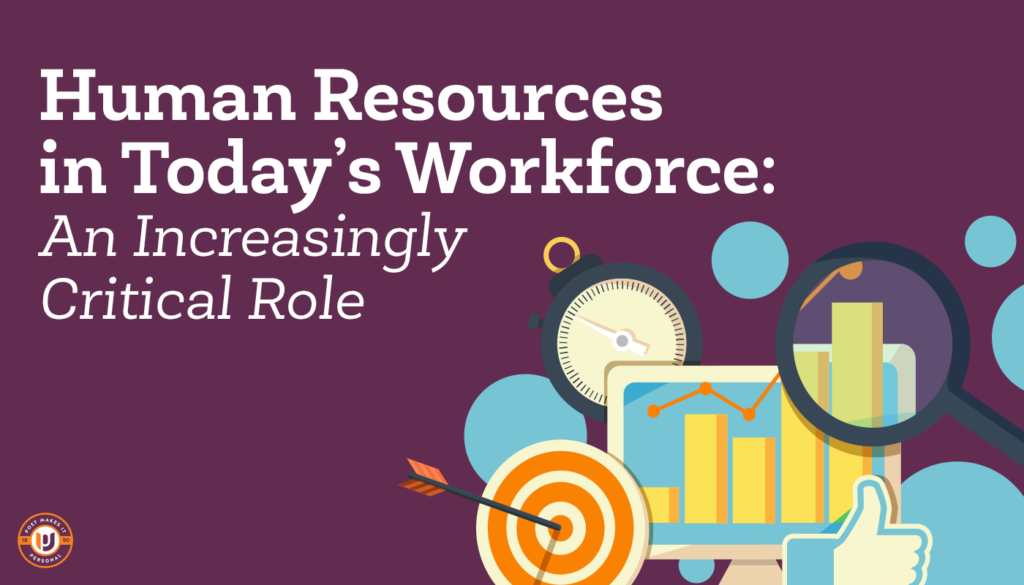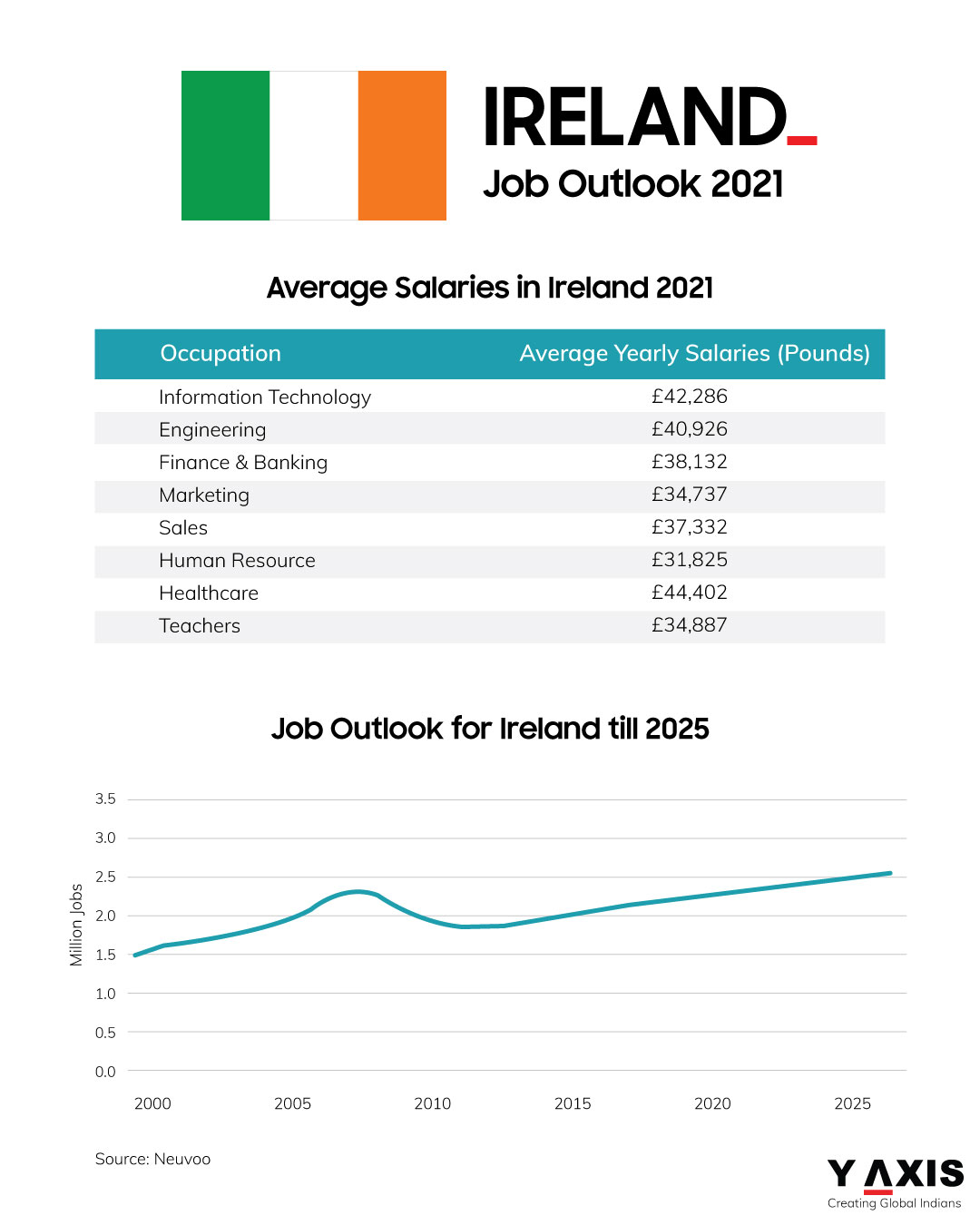Human Resources
Human Resources Facts


Human resources statistics reveal that 66% of employers are willing to hire candidates who lack certain skills, but show enough potential and motivation. Staff turnover costs companies a huge amount of money – up to 33% of the employee’s annual salary – and must be kept under control. To avoid costly employee turnover, companies should create a plan to keep turnover levels in check. Read on for more human resources facts. We hope you find them helpful.
Employee onboarding
An employee onboarding program is a vital part of retention for many reasons, but one key factor is speed. New hires who feel like they’ll be wasting their time and energy are 12 times more likely to leave a company than those who feel that they’ll be making the right career decisions. Also, new employees are less engaged than other employees, which can cost a company thousands of dollars each year. While HR can help speed up the process, it is not the sole responsibility of HR. Onboarding is also the responsibility of the employee’s immediate manager, who should familiarize the new hire with their new role, performance expectations, and culture.
An effective onboarding program requires a partnership between HR and the new employee. The HR team and organizational leaders should be willing to collaborate on the process, which should be as short and simple as possible. This partnership will establish a strong foundation for a productive, long-term relationship between both parties. Ultimately, it should leave the new employee wanting to stay on with the company. A successful onboarding program consists of a variety of social and training activities.
Diversity and inclusion stats
Despite the fact that many companies struggle with gender and ethnic diversity in their workplaces, there are still plenty of opportunities for organizations to improve their policies and practices. According to a recent survey, companies with a higher level of diversity have a 36% higher chance of outperforming their competitors. Diversity and inclusion go hand-in-hand with profit, and the stats below prove it. By following these tips, companies can make strides toward a more diverse workforce and see their businesses grow.
According to the Workforce Diversity Report by LinkedIn, women and minorities make up less than 50% of the workforce in the U.S. In fact, men hold 80% of leadership positions in companies. While women have made great strides in the workplace, racial discrimination still persists in the hiring process. A survey of corporate executives shows that only 3% of these executives are Latinx and Black. These statistics are alarming, but they can be rectified with proper training and diversity initiatives.
Salary of human resources professionals
A Human Resources professional’s salary ranges widely, but it generally falls between the 25th and 75th percentile. As a general rule, the average salary for this profession is 93,200 USD a year. The other half of HR professionals make less than this amount, while those at the top end make more than this amount. In other words, experience is the primary factor affecting a Human Resources professional’s salary. The more years of experience a person has, the higher their salary.
The salary range for HR professionals ranges widely, depending on their experience and ambition. Before entering the field, it is important to research the specific title of the position you’d like to hold and what a reasonable starting salary would be. Once you’ve done that, however, realize that salary growth opportunities are virtually limitless. In addition to salary ranges, a person’s skills and contribution will be a key factor in determining what salary they should be earning.
Job satisfaction of HR staff
HR professionals report a higher overall job satisfaction than their counterparts, with 55 percent citing paid time off and a positive work environment, and 43 percent stating that they felt safe in their current workplace. Likewise, a majority of HR respondents said they were “very satisfied” with their compensation, while only 19 percent stated that their career advancement was their top priority. However, these positive results aren’t necessarily indicative of a job well done. Regardless, job satisfaction is a measure of the general workplace climate, not the specifics of an individual position.
The importance of job satisfaction cannot be understated. It has far-reaching consequences. Low employee satisfaction leads to additional costs, as dissatisfied employees may need specialized learning, career assistance, and rehiring. Therefore, it’s critical to prioritize job satisfaction in your organization to avoid these unexpected issues. In fact, a growing number of organizations are investing in initiatives to measure employee satisfaction. These efforts have been rewarded with positive results.
Visit Destiny Recruiting for HR Careers
Human Resources
Remote Work Benefits in the HR Field

The Rise of Remote Work: A Game-Changer in Today’s Workforce
In recent years, the rise of working remotely has emerged as a game-changer in today’s workforce, transforming the traditional notion of work and redefining the way we approach productivity and collaboration. With advancements in remote work technology and an increasing desire for flexibility among employees, remote work has become a dominant trend that shows no signs of slowing down.
The remote workforce has experienced exponential growth over the past decade, with a significant acceleration following the COVID-19 pandemic. According to recent remote work trends stats, by 2023, it is projected that over half of all employees will be working remotely at least part-time.
This shift towards a more decentralized workforce can be attributed to several factors. Firstly, advances in technology have made it easier than ever for employees to connect and collaborate remotely.
The availability of secure video conferencing platforms, project management tools, and virtual office spaces has enabled seamless communication across geographical boundaries. Furthermore, remote work policies have become increasingly prevalent among organizations seeking to attract top talent and improve employee satisfaction.
In response to changing employee expectations and demands for better work-life balance, companies are embracing flexible working arrangements that allow their employees to choose when and where they work. This transition from a traditional office-based setup to a more fluid remote work environment is driven by both employee preferences and improved productivity outcomes.
A Paradigm Shift in Human Resources
The advent of working remotely has brought about a paradigm shift in the field of Human Resources (HR). With the rise of virtual collaboration tools and the increasing acceptance of working remotely policies, HR professionals have had to adapt their strategies to accommodate this new way of working.
This shift has not only transformed the traditional office environment but has also presented unique challenges and opportunities for HR departments across industries. One significant challenge that HR departments face in managing remote teams is ensuring effective communication and collaboration.
Remote collaboration tools such as video conferencing platforms, project management software, and instant messaging applications have become essential for bridging the gap between team members who are geographically dispersed. HR professionals must now not only be proficient in utilizing these tools themselves but should also facilitate their adoption within their organizations.
By promoting best practices for remote collaboration, such as setting clear expectations, establishing regular check-ins, and encouraging open communication channels, HR can help foster a sense of connectivity among remote teams. Another aspect that HR professionals need to consider in this new era is the establishment of tailored policies concerning working remotely.
Navigating the Virtual Workplace
As the working remotely landscape continues to evolve, navigating the virtual workplace has become a crucial skill for professionals.
With the advancement of technology and the steady growth of remote work trends, employees are now required to adapt to this new working paradigm. Remote work opportunities have expanded significantly in recent years, with more businesses embracing the idea of a remote workforce.
However, along with these opportunities come unique challenges that need to be addressed. One of the key aspects of navigating the virtual workplace is understanding remote work productivity.
With various studies and remote work statistics confirming that employees can be just as productive, if not more so when working remotely, it is essential for individuals to optimize their workflow in this setting. This involves creating a conducive environment at home that promotes focus and minimizes distractions.
Additionally, establishing clear boundaries between personal and professional life becomes crucial when working from home. Remote collaboration is another critical skill in navigating the virtual workplace successfully.
Leveraging Technology for HR in a Remote World
In today’s remote work era, the role of Human Resources (HR) has undergone a significant transformation, requiring the leveraging of technology to adapt and thrive in this new landscape. This section will explore how HR professionals can effectively utilize technology to address the unique challenges and capitalize on the opportunities presented by remote work.
One of the key challenges faced by HR in a remote world is maintaining effective communication and collaboration within remote teams. To overcome this obstacle, HR departments are increasingly relying on digital tools and platforms designed specifically for remote collaboration.
These tools offer features such as video conferencing, instant messaging, document sharing, and project management capabilities. By utilizing these technologies, HR professionals can create virtual spaces that facilitate seamless communication between team members regardless of their geographical locations.
In addition to enhancing communication, technology is also crucial for managing employee performance and productivity in a remote work environment. Remote work presents both advantages and disadvantages when it comes to employee productivity.

working remotely
The Future of HR in the Remote Work Era
As we delve into the future of HR in the remote work era, it is crucial to understand the profound impact that this paradigm shift has had on the traditional workplace. The rise of remote work has transformed not only how we work but also how organizations approach human resources management.
In this section, we will explore two key aspects: the evolution of HR practices and strategies tailored to a remote workforce and the emerging trends that will shape the future of HR in the coming years. As organizations continue to embrace remote work as a long-term solution, HR practices have been compelled to adapt and evolve accordingly.
One significant change lies in recruitment and talent acquisition. With a wider talent pool available due to geographical constraints being eliminated, HR professionals can now tap into global talent markets to find the best fit for their organizations.
This shift requires HR teams to develop innovative strategies for attracting, evaluating, and onboarding candidates remotely. Furthermore, performance management in a remote environment has become increasingly important.
Traditional methods such as annual performance reviews are being replaced by more frequent check-ins and continuous feedback mechanisms facilitated by digital tools. This allows managers to monitor employee progress effectively and address any challenges or provide support promptly.
Conclusion
The rise of remote work has undoubtedly revolutionized the way we perceive and engage with the workforce. With the advent of advanced technology and seamless communication tools, individuals and organizations have embraced telecommuting as a viable alternative to traditional office spaces.
The virtual work landscape has opened up a plethora of opportunities for both employers and employees, enabling them to transcend geographical barriers and tap into global talent pools. As discussed throughout this article, remote work offers numerous benefits for both individuals and businesses alike.
From increased flexibility and improved work-life balance to reduced overhead costs and access to a wider talent pool, the advantages are undeniable. The statistics show that remote work has been rapidly growing in recent years, a trend that was further accelerated by the COVID-19 pandemic.
And even post-pandemic, experts predict that remote work will continue to shape the future of our workforce. To optimize productivity in this new era of virtual work, it is crucial for companies to establish effective working remotely best practices.
Frequently Asked Questions (FAQs)
Q: What is remote work, and why has it become so popular in today’s workforce? A: Remote work refers to a work arrangement in which employees can perform their job duties from locations outside of a traditional office setting. It has gained popularity due to advancements in technology, allowing seamless communication and collaboration, and employees’ desire for increased flexibility and work-life balance.
Q: How has the COVID-19 pandemic impacted the rise of working remotely? A: The COVID-19 pandemic accelerated the adoption of remote work as businesses were forced to adapt to lockdowns and social distancing measures. Many companies implemented remote work policies to ensure business continuity, leading to a significant increase in remote workforce participation.
Q: What are the benefits of working remotely for employees and employers? A: For employees, remote work offers flexibility in managing their schedules, reduced commuting stress, and the ability to work from any location. For employers, remote work can lead to cost savings on office space, access to a larger talent pool, and increased employee satisfaction and retention.
Q: What challenges does working remotely pose for businesses and employees? A: Remote work can present challenges related to maintaining effective communication, collaboration, and team cohesion. Employees may also struggle with maintaining work-life boundaries, and employers may face difficulties in monitoring and managing remote employees’ performance.
Q: How can HR professionals adapt to the working remotely era and support a virtual workforce? A: HR professionals can adapt by leveraging technology for remote communication, performance management, and talent acquisition. They should also develop customized remote work policies that address employee needs and promote a positive work culture. Regular check-ins, virtual team-building activities, and wellness initiatives can foster engagement and well-being among remote employees.
Human Resources
The Importance Of Employee Benefits For Retaining Your Employees

In the current business landscape, employee benefits play a crucial role in employee retention. Recent statistics indicate that over 60% of employees consider benefits to be of utmost importance in terms of employer loyalty.
These benefits, offered alongside salary or wages, encompass a range of offerings, including health insurance, retirement plans, and paid time off. By providing such benefits, employers demonstrate their commitment to the overall well-being and future prospects of their employees.
Moreover, these benefits are instrumental in attracting top talent, enhancing productivity, minimizing turnover, and bolstering morale. They contribute to the maintenance of a healthy workforce by promoting employee health and well-being, resulting in reduced absenteeism and improved productivity.
Additionally, a well-crafted benefits package enables businesses to stand out from competitors and effectively entice the most qualified candidates. By supporting work-life balance, such benefits foster increased engagement and productivity.
Ultimately, these employee benefits create a positive work environment, support employees’ personal lives, and elevate job satisfaction and engagement, thereby cultivating a productive organizational climate.
## Key Takeaways
- Employee benefits are essential for attracting, retaining, and motivating employees.
- Over 60% of employees consider benefits extremely important for employer loyalty.
- Employee benefits contribute to employee satisfaction, well-being, and a healthy workforce.
- Comprehensive benefits packages help attract talented employees and differentiate from competitors.
The Importance of Employee Benefits
The importance of employee benefits lies in their ability to attract, retain, and motivate employees. Over 60% of employees consider benefits extremely important for employer loyalty. These benefits support employees’ lives and provide resources for fulfilling lives.
When employers show care for their employees’ well-being, it promotes loyalty and contributes to their overall satisfaction. Providing employee benefits is vital for a healthy workforce. It attracts talented individuals, boosts productivity, minimizes turnover, and improves morale.
By offering comprehensive benefits such as health insurance, retirement plans, and paid time off, employers demonstrate their commitment to their employees’ well-being. This not only enhances employee satisfaction but also creates a positive and productive work environment.
Therefore, investing in employee benefits is an effective strategy for promoting loyalty and employee well-being.
Attracting and Retaining Talent
To attract and retain talented individuals, organizations should offer a comprehensive package of non-wage compensations. Employee benefits play a crucial role in shaping an organization’s competitive advantage in hiring and implementing effective employee retention strategies. Here are three reasons why a comprehensive benefits package is essential:
1. Stand Out from Competitors: In today’s competitive job market, offering attractive benefits can set an organization apart from its competitors. Candidates are more likely to choose a company that provides a comprehensive benefits package, including health insurance, retirement plans, and paid time off.
2. Attract the Best Candidates: Top talent seeks employers that prioritize their well-being and future. By offering a robust benefits package, organizations can attract highly skilled individuals who are looking for stability, security, and opportunities for personal and professional growth.
3. Increase Employee Loyalty: A comprehensive benefits package demonstrates an organization’s commitment to its employees’ overall well-being. When employees feel valued and supported, they are more likely to stay with the company long-term, reducing turnover and fostering a strong sense of loyalty.
By investing in employee benefits, organizations can create a positive work environment, attract top talent, and gain a competitive edge in the hiring process.
Enhancing Employee Satisfaction
Enhancing employee satisfaction involves implementing strategies that prioritize the well-being and contentment of individuals within an organization.
One crucial aspect of this is improving work-life balance, which can be achieved through the provision of employee benefits. By offering benefits such as flexible work arrangements and paid time off, employers can promote a healthier integration of work and personal life.
This not only allows employees to have more control over their schedules but also helps prevent burnout and stress.
Additionally, promoting employee well-being through benefits like wellness programs and mental health resources can contribute to a positive work environment and increased job satisfaction.
By prioritizing these strategies, organizations can foster a culture that values the overall well-being of their employees, ultimately leading to higher levels of satisfaction and retention.
Frequently Asked Questions (FAQs)
Q: How do employee benefits contribute to the overall company culture?
A: Employee benefits play a crucial role in shaping a company’s culture by aligning with its values and promoting employee engagement.
By offering a comprehensive benefits package, companies demonstrate their commitment to the well-being and satisfaction of their employees. This fosters a positive work environment and promotes a sense of belonging and loyalty.
Employee benefits also contribute to employee engagement by providing resources and support that help employees thrive both personally and professionally.
Ultimately, a strong company culture built on employee benefits can drive innovation and attract top talent.
Q: Can employee benefits help improve employee loyalty and commitment to the organization?
A: Employee benefits play a crucial role in improving employee loyalty and commitment to the organization.
By offering comprehensive benefits such as health insurance, retirement plans, and paid time off, employers demonstrate care for their employees’ well-being.
This contributes to higher job satisfaction and engagement, leading to increased productivity.
Additionally, attractive benefits packages help to attract top talent, setting the organization apart from competitors.
Ultimately, employee benefits are a powerful tool for fostering loyalty and commitment among employees, resulting in a more dedicated and productive workforce.
Q: Are there any legal requirements or regulations regarding the provision of employee benefits?
A: Legal obligations and compliance regulations exist regarding the provision of employee benefits. Employers are required to adhere to various laws, such as the Affordable Care Act, which mandates certain healthcare benefits, and the Employee Retirement Income Security Act, which sets standards for retirement plans.
Additionally, employers must comply with regulations related to paid time off, family and medical leave, and other benefits. Ensuring compliance with these legal requirements is crucial to avoid penalties and maintain a positive relationship with employees.
Q: How do employee benefits impact employee morale and job satisfaction?
A: Employee benefits have a significant impact on employee morale and job satisfaction. For instance, a study conducted by Glassdoor found that companies with strong benefits packages have a 41% higher retention rate compared to those with less comprehensive offerings.
This suggests that employees who feel supported and valued through benefits such as flexible work arrangements and paid time off are more likely to be engaged and productive.
By providing meaningful benefits, employers can create a positive work environment that fosters employee satisfaction and ultimately drives innovation.
Q: What are some effective strategies for communicating and promoting employee benefits to employees?
A: Employee benefits engagement can be enhanced through effective communication techniques. To promote employee benefits, employers can utilize various strategies.
Firstly, they can create personalized communication materials such as brochures or videos that highlight the value and importance of the benefits.
Secondly, employers can organize informational sessions or workshops to educate employees about the benefits and answer any questions they may have.
Additionally, employers can leverage digital platforms, such as intranet portals or mobile apps, to provide easy access to information and resources related to the benefits.
These strategies can effectively communicate and promote employee benefits, ensuring employee engagement and satisfaction.
Human Resources
Is the Job Outlook for Human Resources Managers Good?


If you’re considering a career in human resources, you’re probably wondering if the career outlook is good. The fact is that the job outlook for HR managers is good! If you are considering a career in HR, you’ll be happy to learn that salaries and employment prospects are on the rise! Continue reading to learn about the job outlook for human resources professionals, including the top paying states. In addition, we’ve included information on credentials, salaries, and job outlook.
Careers in human resources
As a career in human resources, you have a variety of choices. There are bachelor’s and master’s degrees, short-term programs, and specialized graduate diplomas, as well as certifications to enhance your skills in specific areas of HR. You may even choose to specialize in one of several functional areas. There are many different ways to specialize in human resources, so you can choose to focus on a particular function within your company.
Career paths
The Human Resources career path is a varied one that combines both traditional and nontraditional options. A career in HR can range from the junior management level to creating employee programs for huge corporations. Depending on the company and the individual’s interests, career opportunities will vary. Some people may opt to specialize in one of the following areas: payroll administration, benefits management, or employee engagement. Others may opt to work as recruiters or in a different field altogether.
Salary
The job outlook for HR professionals is based on the nation’s economy. An improving economy usually means an increase in HR jobs. However, today’s HR field is much more diverse than in years past. It is therefore important to get an education or advance your career before applying for positions with high demand. Below are some salary projections:
Credentials
One of the most frequently asked questions among people who are considering a career in human resources (HR) is whether or not a certification or degree is necessary. While the answer is complex, certifications are generally considered worthwhile investments. The following are some benefits of certifications:
Industry outlook
The Human Resources Industry Outlook for 2022, released by HIRE Technologies, outlines eight key priorities for the human resource field. These include the COVID-19 pandemic, which has already impacted the business world, and the looming talent shortage. These challenges will continue to plague companies, as companies will continue to seek the best candidate, regardless of their location. To remain competitive, companies need to adapt to this fast-paced industry.
Visit Destiny Recruiting for HR Careers
-

 HR Management2 years ago
HR Management2 years agoHR Jobs Without a Degree
-

 HR Management2 years ago
HR Management2 years agoThe Highest Paying HR Jobs
-

 Human Resources2 years ago
Human Resources2 years agoWhy We Hate HR
-

 Human Resources2 years ago
Human Resources2 years agoThe Benefits of AI in HR
-

 HR Management2 years ago
HR Management2 years agoMasters in HR Jobs
-

 Human Resources2 years ago
Human Resources2 years agoLabor Relations Specialist Job Description
-

 HR Management2 years ago
HR Management2 years agoWhat is the Job Description of a Chief Human Resource Officer?
-

 HR Management2 years ago
HR Management2 years agoHealthcare Management Opportunities











